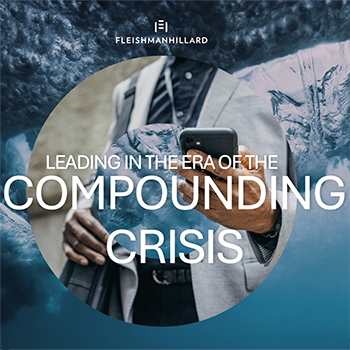AI advancements set to bring seismic shifts in how we access healthcare
 Recent breakthroughs in AI and the anticipated speed at which businesses and industry are expected to transform will likely bring seismic shifts to the Healthtech landscape – from the way that people access healthcare to how we utilize data and begin to develop new systems and tools. There is a whirlwind of innovation ahead and, as more businesses plug themselves in, the speed of transformation in the sector is likely to shift current challenges in ways that we would not have imagined even one month back.
Recent breakthroughs in AI and the anticipated speed at which businesses and industry are expected to transform will likely bring seismic shifts to the Healthtech landscape – from the way that people access healthcare to how we utilize data and begin to develop new systems and tools. There is a whirlwind of innovation ahead and, as more businesses plug themselves in, the speed of transformation in the sector is likely to shift current challenges in ways that we would not have imagined even one month back.
Access to ChatGPT, while cautioned by some has been mandated by many organisations with staff already experiencing first-hand the radical time savings on tasks. Considering the challenges faced by healthcare professionals in the UK, short term wins from harnessing this technology responsibly and effectively may have a significant impact.
Consider the challenge of GP burnout and how having an always-on personal assistant to help validate diagnoses and provide practitioners with an additional layer of comfort and confidence will help when addressing unique patient needs. As API interfaces become more ubiquitous, we will likely see new tools leveraging AI popping up at pace, and these tools may well see radical shifts in patient care that we initially thought might take a few more years.
Our FH Healthtech team looked at four ways the landscape could fundamentally shift some of the most pressing challenges faced by the sector in the next few months alone:

Saskia Mehring, Associate Director, Healthcare
Improving diagnostic pathways – AI technologies such as machine learning or generative AI have been vital tools used across healthcare for over a decade, supporting more accurate and timely clinical diagnoses through the ways in which healthcare professionals track, map and analyse data, identify trends as well as disease markers that may otherwise be overlooked. Putting patients at the heart of the matter, AI technologies continue to play a significant role in reducing human error and allowing the medical community to develop a deeper understanding of the emotional journey patients are on, to establish trusted relationships across the continuum of care and ultimately driving more value-based and personalised healthcare.
For patients the use of AI technologies can be empowering and enable a more proactive role in their own journey. Knowledge is power and being more educated allows patients to do a basic triage to gain initial advice before seeking treatment from a healthcare professional.

Elmarie Swart, Associate Director, Technology
Medical-first innovation – Technology transformation for healthcare has previously been predominantly developed by tech savvy people who seldom have matching medical knowledge. The democratisation of AI now means that medical professionals can bypass hurdles that may have previously held them back from experimenting with design features tailored to their specific ideas and needs.
Data analysis, web development and graphic design are now tasks that do not require specialist skills to develop the first iteration of a product or service. Medical professionals with a clear idea of what they need can now develop solutions without needing to engage developers or other personnel. It may be a while before people are confident enough to take full control of developing their own ideas, but what this will do is speed up product development and spur a wave of healthy competition.

Amy Story, Account Director, Technology
Supporting mental health – Technology has driven a flurry of innovation over recent years to develop apps that can monitor and support those facing challenges with their mental health – from meditation and mindfulness to clinical diagnosis. This is helping employers and HCPs alike to offer a more diverse range of solutions while dealing with high volumes of cases – 1 in 6 people will experience a mental health problem of some kind each year in England – and AI is playing an increasingly important role in these offerings.
With this spate of apps and other digital services, though, comes a need for greater regulation, discernment, and human intervention. Digital mental health support is not a like-for-like replacement for other services and therapies, and an over-reliance on these tools could leave some in even greater need. Both employers and HCPs need to do their best to provide a holistic offering, with an understanding of the nuances of mental health in mind.

Hadassah Cullen, Head of Consumer Health
Wearables – Wearable technology has expanded significantly in the medical world over the past decade and is in a period of rapid advancement. From watches to biosensors, the consumer market has become far more accessible, enabling patients to monitor their health in real time and take control with self-care. Now, with the integration of AI and Machine Learning (ML), wearables are set to get even smarter.
Early reports suggest that AI tools could soon be used to prompt a more proactive and predictive approach to healthcare, harnessing models to predict outcomes before suggesting an optimised route. This ultra-personalised innovation could help to reduce the burden on our overstretched healthcare services, with countless applications such as preventing injury before it occurs, proactive diagnosis of medical conditions, and identifying the most effective treatment pathway based on an individuals’ needs and circumstances.
In summary
The continuous surge and evolution of AI technologies and their use across the ever-growing Healthtech offers ample and unique opportunities for companies to take advantage of. By balancing opportunity with careful appreciation of risks and key considerations, the healthtech sector can increase understanding of healthcare concerns, speed up the availability of treatment and support, and alleviate staff pressure – ultimately ensuring better outcomes for those in need.
If you are a Healthtech business looking to establish or expand your brand, please get in touch with our specialist team at [email protected].
Find Out More
-
Corporate Affairs Trends for 2026
December 10, 2025
-
Leading in the era of the compounding crisis
October 2, 2025


